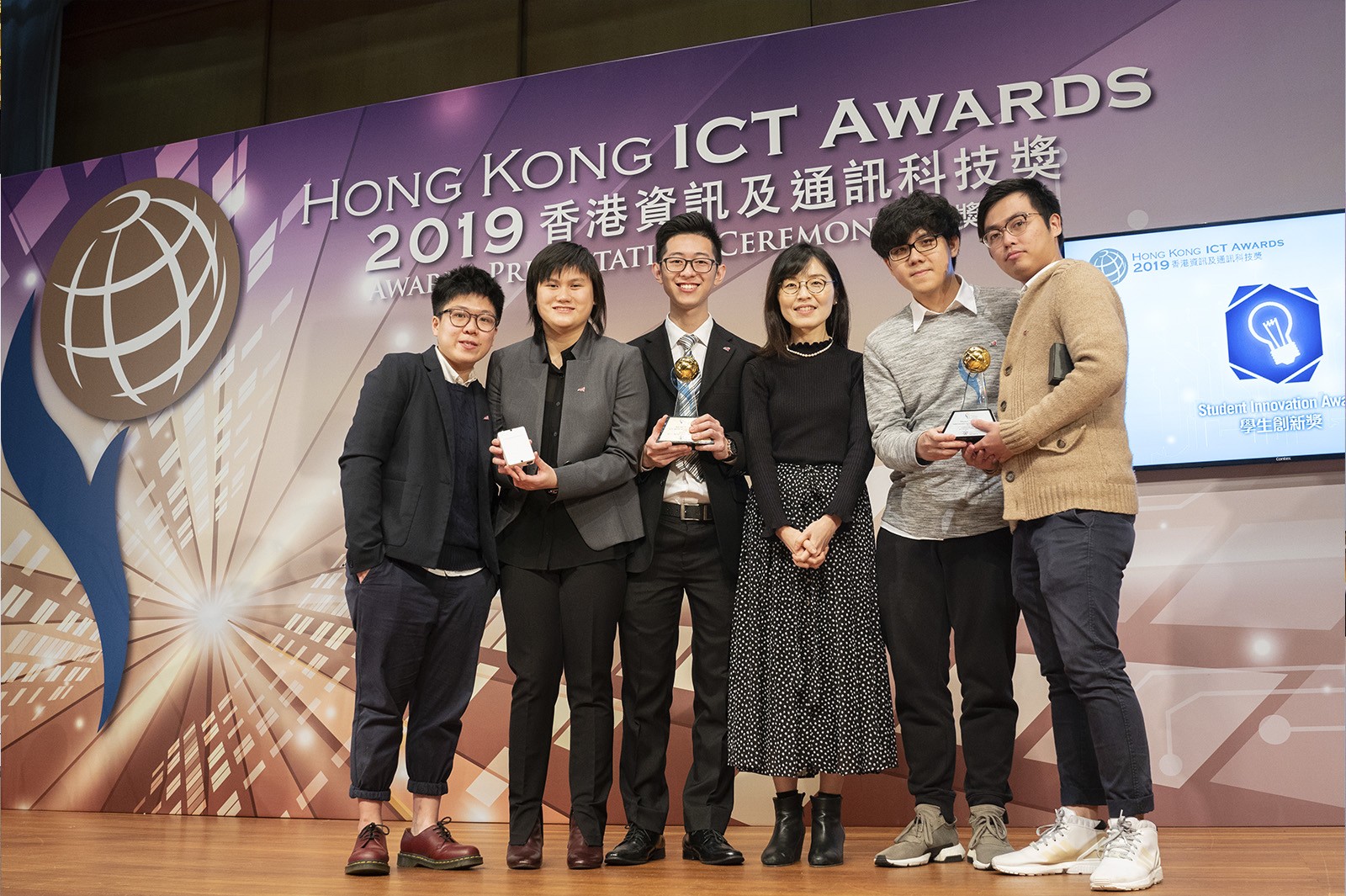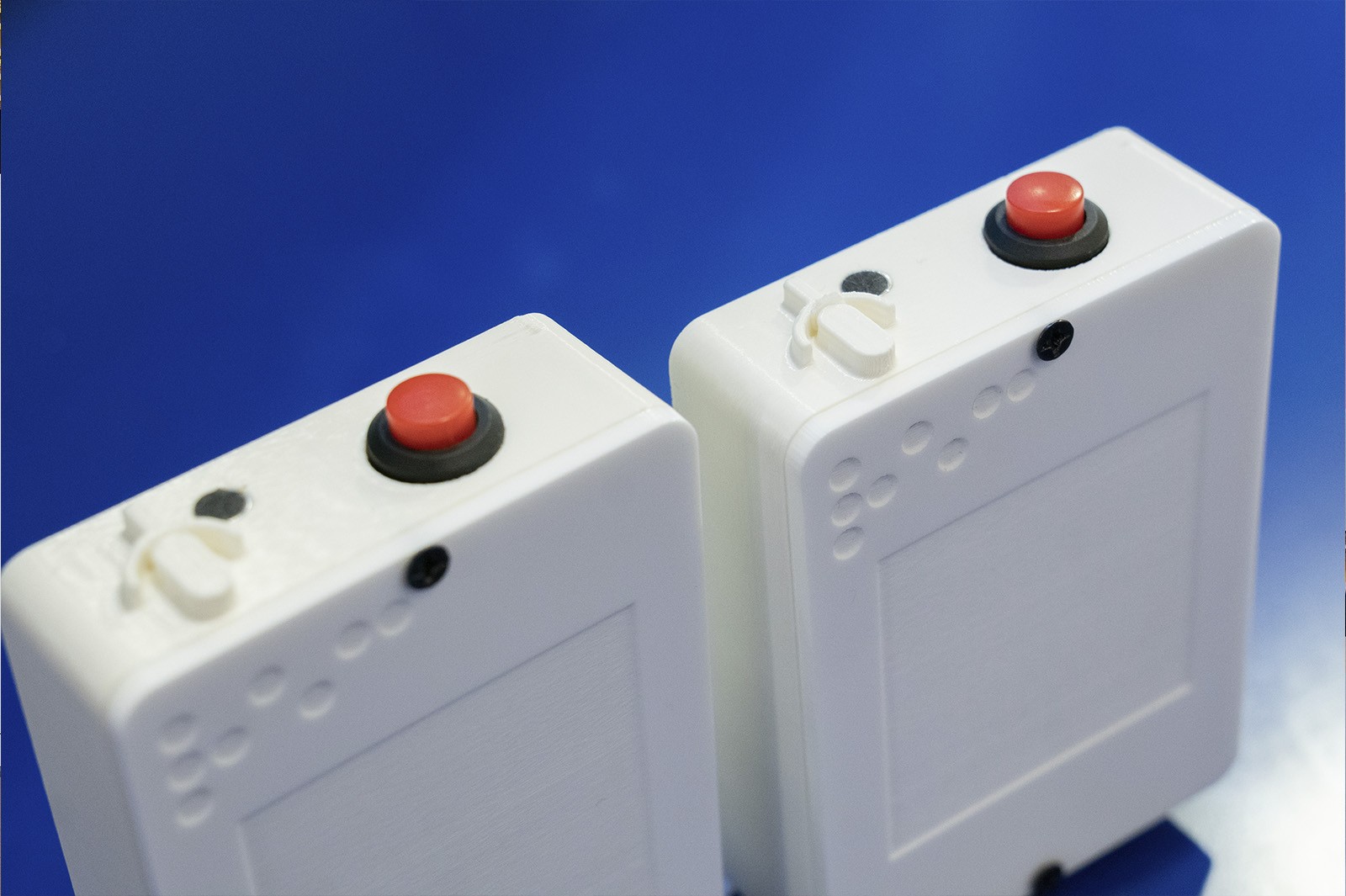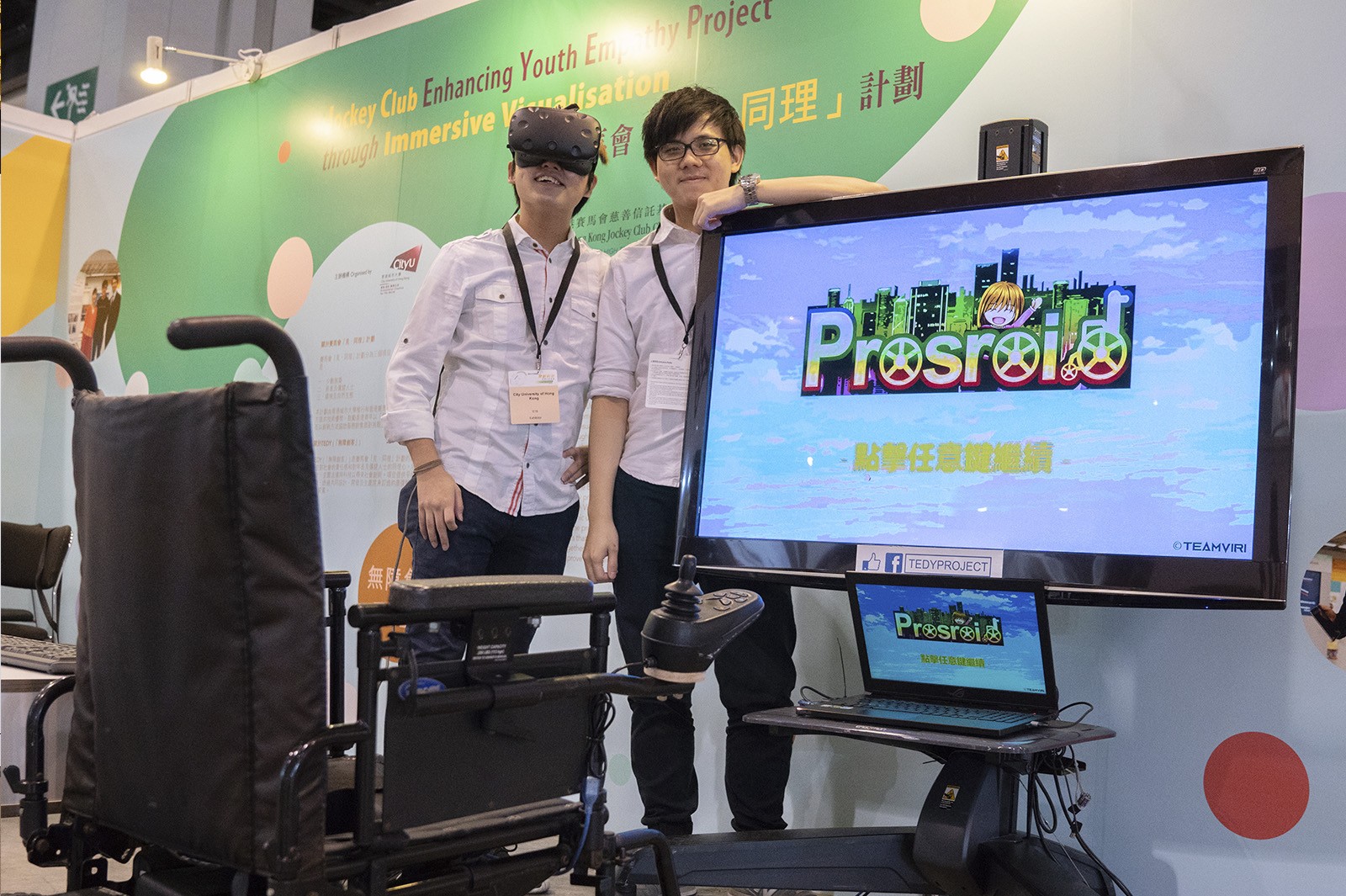Innovative students win Hong Kong ICT Awards

Two teams of students from City University of Hong Kong (CityU) have won the prestigious Hong Kong ICT Awards (HKICTA) 2019 for innovative projects that aim to improve the quality of life for people with disabilities.
The Awards Presentation Ceremony was held on 4 April. The awards were presented by Mrs Carrie Lam Cheng Yuet-ngor, the Chief Executive of the Hong Kong Special Administrative Region (HKSAR), and senior government officials of HKSAR.
The teams were from the “Jockey Club Enhancing Youth Empathy Project through Immersive Visualisation” (the Project), led by CityU and funded by The Hong Kong Jockey Club Charities Trust (the Trust).
One of the awarded projects, Talktag, is an audio labeler that helps visually impaired people (VIP) identify different objects. The CityU team beat 400 other student teams to win the Student Innovation Grand Award and the Student Innovation (Post-Secondary and Undergraduate) Gold Award. Another project, Prosroid, is a wheelchair training simulator. It won the Student Innovation (Post-Secondary and Undergraduate) Silver Award.

Talktag applies near field communication (NFC) technology. When an object is placed against the sensor, it reads the information on the NFC tag and hence tells the user what the object is.
The student team has worked closely with the Hong Kong Federation of the Blind to arrange user tests and modify the invention according to feedback so as to fine-tune the design and better suit the needs of users.
“Talktag aims at alleviating the daily challenges of VIP and assisting them to live more independently. We hope the awards will enhance public awareness about the needs of the less privileged,” said Owen Kwong Hau-shing, one of the creators of Talktag and a student from the Department of Electronic Engineering (EE). The other student creators are Chloe Lam Nga-wai from EE and Olive Chung Wing-lam from the Department of Mechanical Engineering.

With Prosroid, users can practice in training scenarios by driving a simulated power wheelchair in a CAVE (Cave Automatic Virtual Environment) system or using a virtual reality head mounted display. The simulator’s scenarios are based on real-life situations in Hong Kong. Users are trained to deal with slopes, narrow alleys, lifts and getting on and off public transport.
Prosroid is a collaborative work with the Community Rehabilitation Service Support Centre of the Hospital Authority (HA). Occupational therapists at HA provided protocols and suggestions to the student team for the development of the training system.
“It’s a recognition for us to get the award,” said Eric Lo Chi-wing, a student creator from the School of Creative Media (SCM). “We hope our wheelchair training simulator can facilitate a safe environment for effective training and assessment.” The other student creator from SCM is Ken Hung Kai-chun.
The above two inventions were developed through the TEDY (Technologies for the Elderly and Disabled people by Youths) programme under the Project for which the Trust has granted over HK$15 million. The Project aims to empower young people to solve social problems with innovative applications and develop greater empathy among young people in society.
